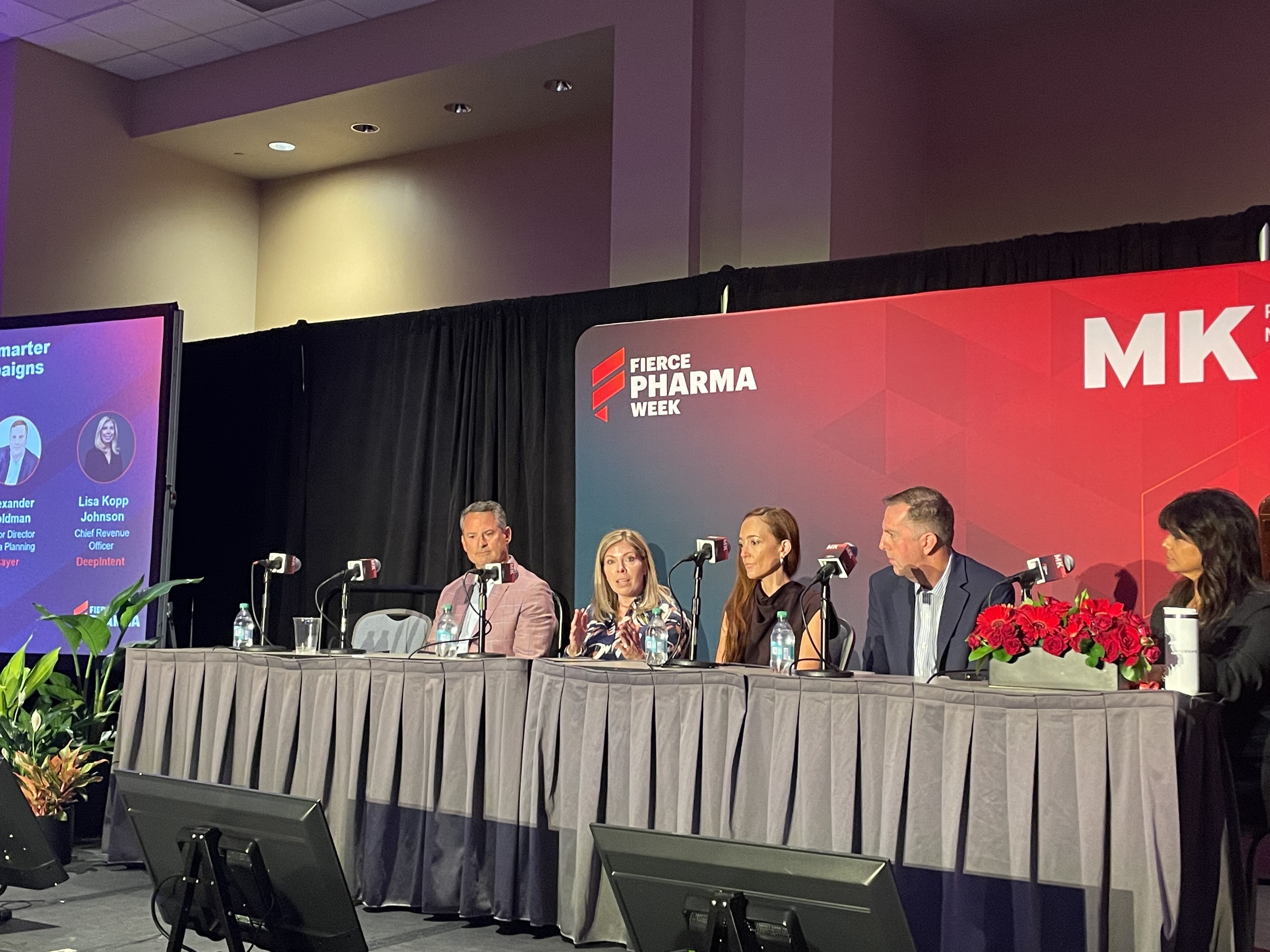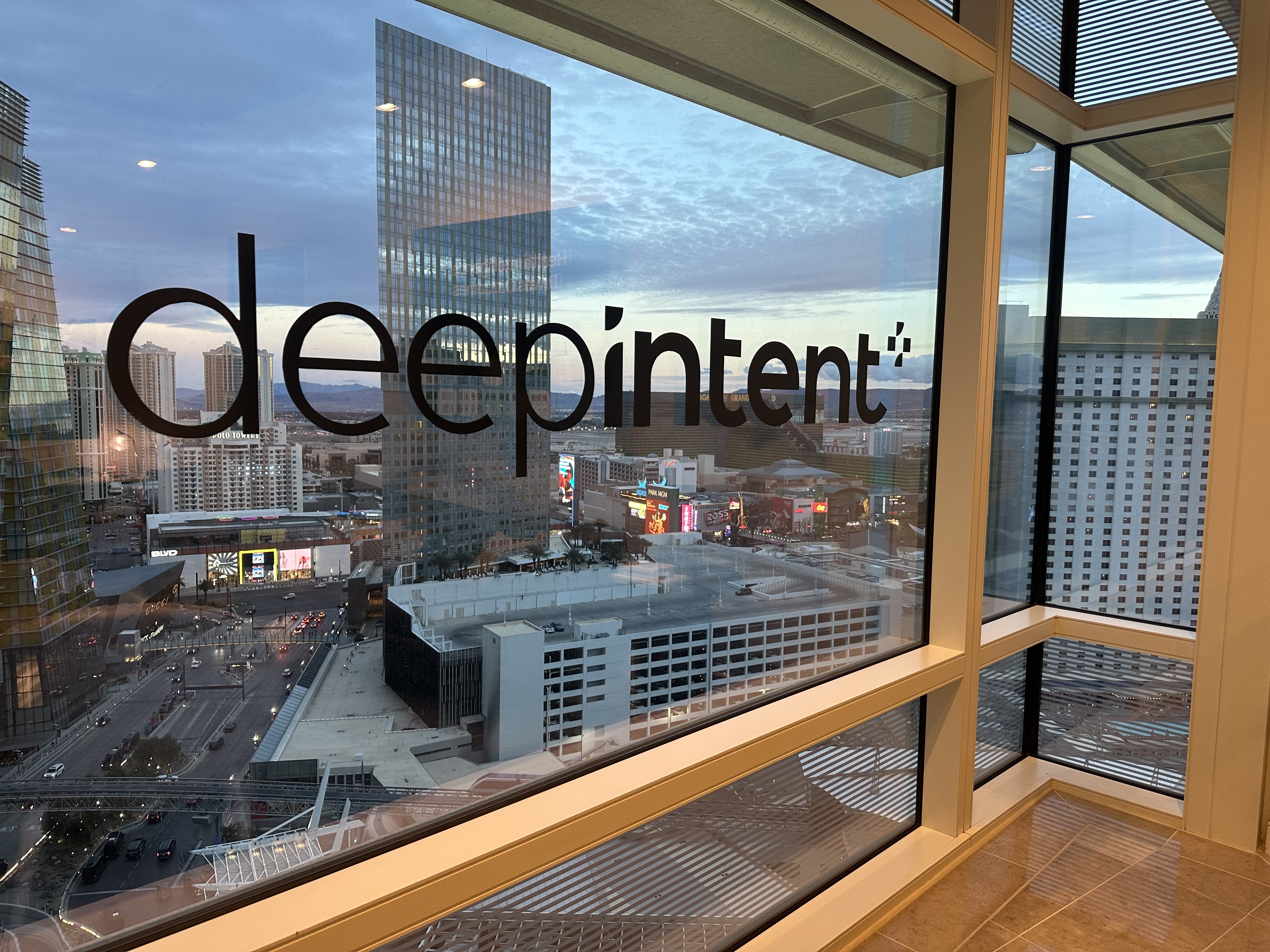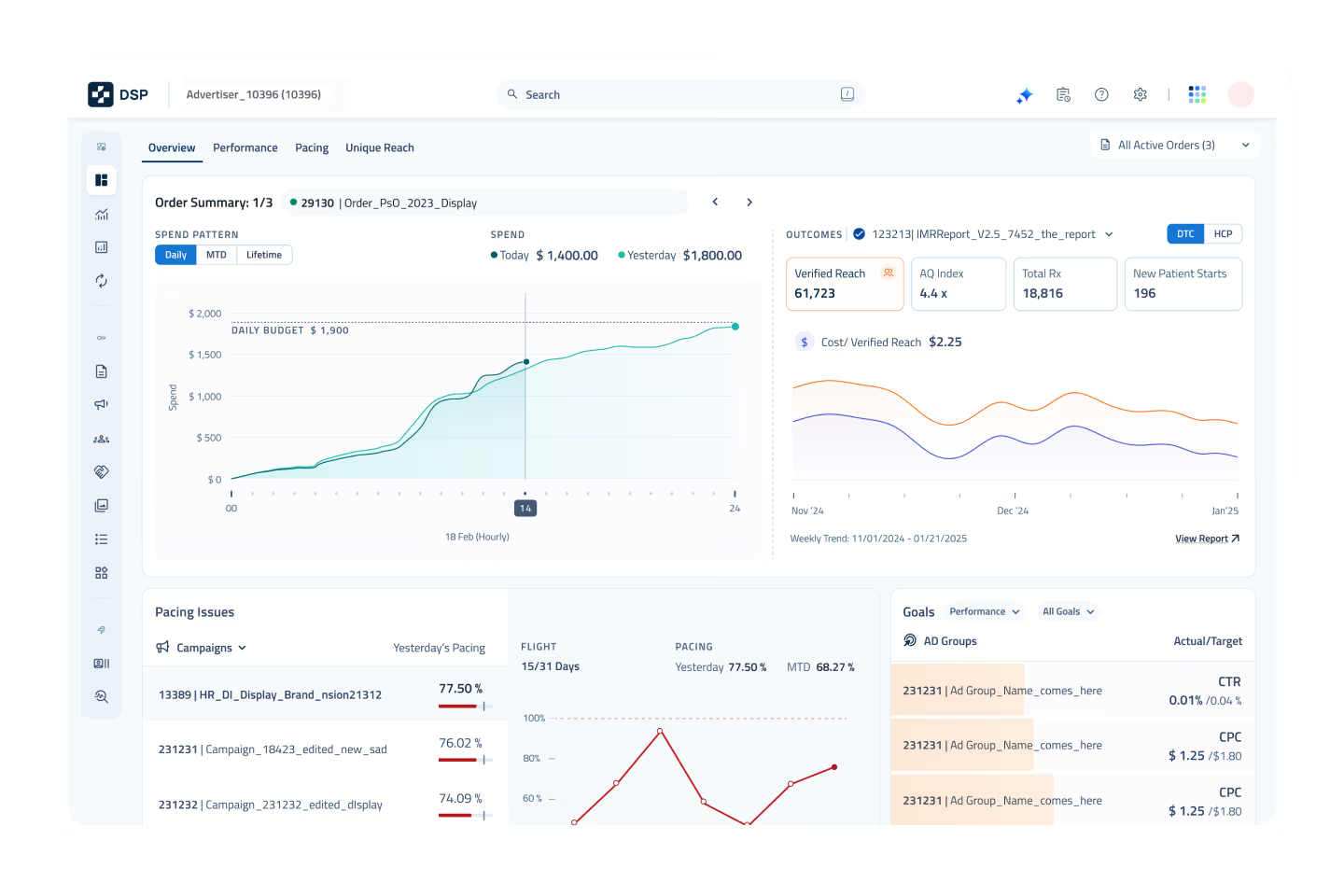At Fierce Pharma Week 2025, a panel of industry leaders tackled the fast-changing world of programmatic advertising and its role in improving healthcare outcomes. DeepIntent CRO Lisa Kopp Johnson joined Alex Goldman, Senior Director of Media Planning at Bayer, Erin Nocito, Head of Global Media at Amgen, and Chris Neuner, President of Throtle, with moderator Sumana Rajagopal, Executive Director of Media and Content at Merck. Together, they explored how speed, data, privacy, and precision are reshaping the way pharma brands engage with healthcare providers (HCPs) and patients.
Breaking Down Silos and Speeding Up Decisions
One recurring theme was the need to collapse silos and act faster. Goldman described how Bayer’s in-housing of programmatic broke down barriers between market access, medical, and marketing teams. Amgen’s Nocito agreed that speed is essential, noting that whether companies in-house, outsource, or do something in between, the end goal must be the same: “breaking down silos and enabling speed to market.”
DeepIntent’s Johnson added that a daily refresh of claims data eliminates latency in reaching patients and physicians at the most critical moments of the health journey. “During a person’s health journey, it matters when you reach them,” she said.
Expanding Access to Premium Inventory
The conversation then turned to video and streaming. Nocito described how Amgen has moved away from rigid upfront commitments to more flexible, audience-based buying, aligning investment with business and patient needs rather than artificial timelines. Johnson emphasized how technology has caught up, making premium placements that were once only available through upfronts now accessible programmatically. This shift, she said, offers both flexibility and efficiency. “Couple that with measurement and speed of optimization, and there’s so much innovation happening.”
A Healthcare-First Approach to Programmatic
Johnson stressed that pharma requires a specialized model, one that prioritizes patient privacy and healthcare-specific outcomes. “Everything we do, from planning to optimization to measurement, is designed for healthcare,” she explained. Neuner echoed her point, noting that the DeepIntent identity framework offers a standout level of transparency and consistency in a fragmented ecosystem.
Measuring What Matters
Measurement was another major topic. Nocito described Amgen’s blend of lagging business measures like ROI with leading indicators that allow for quicker optimization. Goldman emphasized the importance of audience quality, while Neuner pointed to the industry’s ability to now track adherence across the patient journey. For Johnson, the critical question is not just what to measure but how to get there: programmatic enables dynamic testing of channels, creatives, and audiences to identify the optimal path to each key performance indicator (KPI).
Privacy and the Rise of Clean Rooms
With new state privacy laws emerging rapidly, the panel acknowledged the compliance challenge. Johnson explained that DeepIntent’s singular focus on healthcare gives it an advantage: “Five new states have recent regulatory changes or ones coming up. Change is constant. But because this is all we do, our entire business is built on being privacy-first.” She highlighted the growing role of data clean rooms in protecting sensitive information while still enabling measurement.
Looking Ahead: Precision and Connectivity
The panel closed with predictions for the future of programmatic. Goldman highlighted the link between better data and better outcomes, while Nocito pointed to the promise of more agile messaging, aided by AI. Neuner stressed the importance of greater connectivity across platforms as tech giants enter healthcare.
Johnson brought the conversation back to precision. With 72% of new drug approvals now in rare disease, she argued, reaching small, complex patient populations with accuracy is the next frontier. “The ability to precisely reach hard-to-reach patient populations is where our industry is going,” she said. She also expressed a hope for deeper integration of HCP and patient campaigns, noting that uniting the two could unlock even greater performance.
For DeepIntent, this emphasis on precision, privacy, and performance is the foundation of the platform. As Johnson made clear, the combination of refreshed medical data, privacy-first design, and precise targeting is enabling pharma marketers to do something that once felt out of reach: connect with physicians and patients in ways that are both compliant and clinically meaningful. Our industry’s next chapter will be measured by the tangible impact campaigns have on patient journeys and outcomes.
Curious for more key takeaways from Fierce Pharma Week 2025? Click here.







